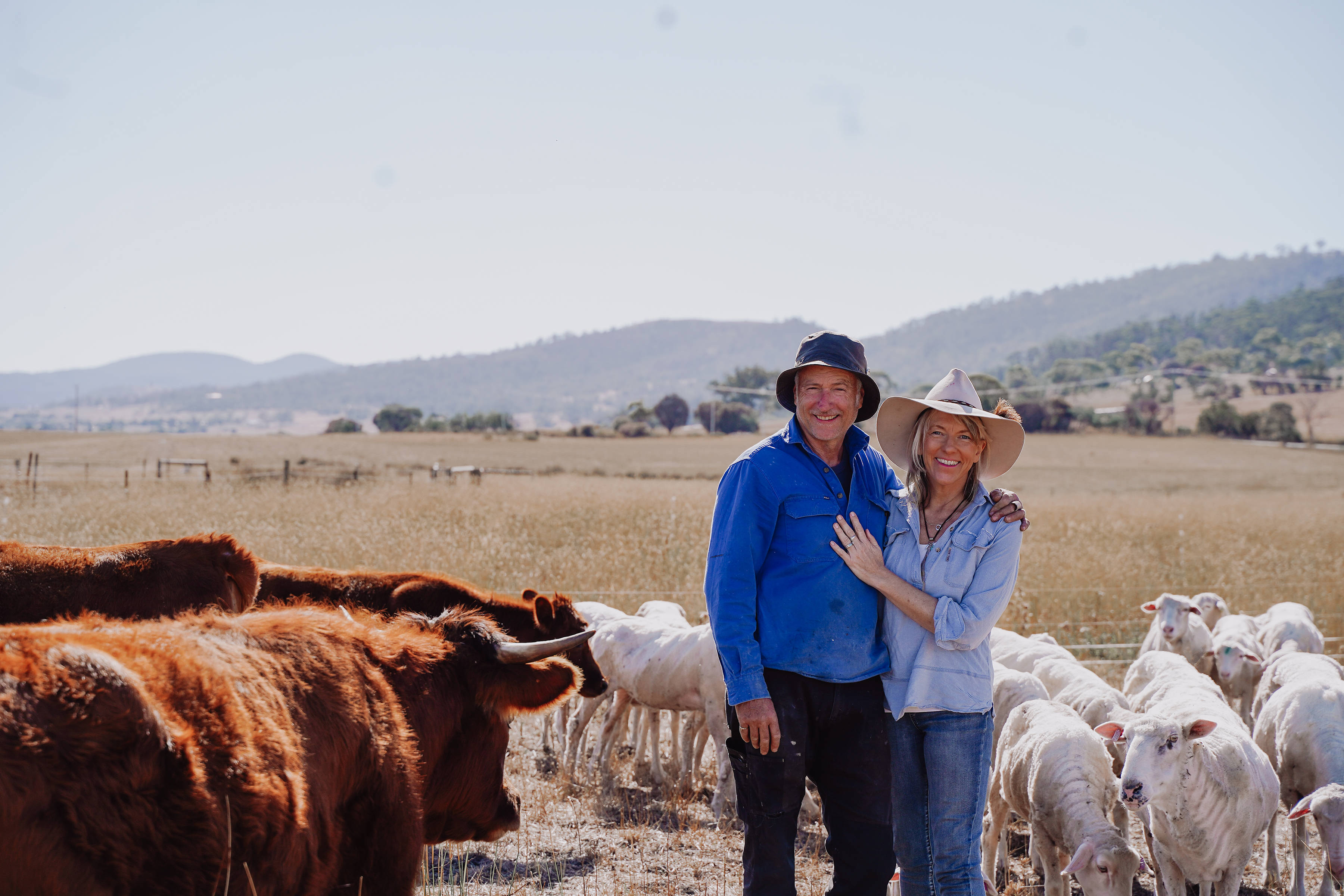Bestselling author Rachael Treasure and her partner Daniel Loré are passionate about regenerative agriculture. Five years ago, Daniel inherited Ripple Farm near Richmond. This was one of the oldest blocks of continuously farmed land in Tasmania. And it showed. ‘It was a wasteland, with three trees on 40 hectares,’ said Ms Treasure. ‘There was a drain running through it, and dead soil on either side. We couldn’t find an earthworm.’
The restoration of Ripple Farm

But the couple had a vision; they wanted to restore the property to native grassland and wetland, with food farming included.
The first thing they did was rest the land for twelve months. ‘We needed to watch where the water flowed, where the birds landed,’ said Ms Treasure. ‘And we built up biomass, in the form of weeds that we could then turn back into soil using grazing animals.’
Mr Loré and Ms Treasure chose animals that would suit the environment; little Irish Dexter cattle, and bare-breech Aloeburn poll merinos bred for Australian conditions.
‘Grazing can either destroy or restore a landscape,’ said Ms Treasure. ‘It needs managing to create a closed carbon cycle. The land needs time to rest and recover before the animals come back to that area.’
She and her partner practise high-density grazing, moving the animals every day, which mimics the action of African herds. They run the animals in family groups, so the calves and lambs self wean. ‘We do everything we can to make sure they’re happy.’
In dry times, they destock before the animals and the land suffer.
For Ms Treasure, this is the way of the future for farming. ‘A living soil reduces drought, bushfires and flooding,’ she said. ‘And native grasslands are a huge carbon sink. Healing the soil and our ecology can help buffer humanity from climate change.’
She also sees it as a way for farmers to reclaim their power from the chemical companies and dramatically reduce input costs.
‘We’re not aiming to feed the world,’ she said. ‘We just want to feed our local community.’
Since taking over the farm, Mr Loré and Ms Treasure have planted over a thousand trees of different species. ‘Now we’re finding earthworms, wallaby grass, insects, predatory wasps, spiders and bees.’
Keen to share their knowledge, they have hosted Landcare field days, as well as students from Richmond Primary School looking at dung beetles. In the future they hope to hold events, movies and banquets in their 1960s shearing shed.
The Clarence Climate Action group has chosen Ms Treasure and Mr Loré as this month’s Climate Champions.
Eastern Shore Sun, May 2022, page 11